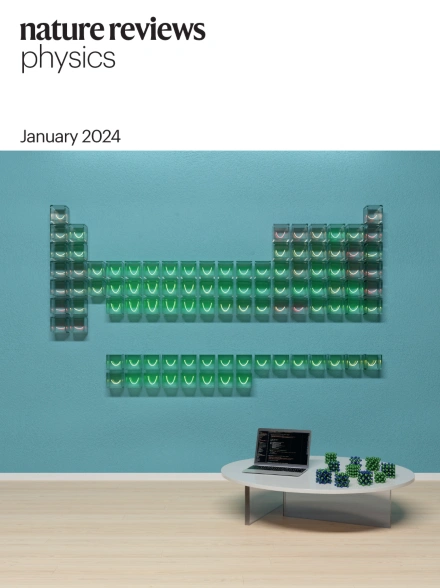通过超级计算加速核聚变研究
IF 39.5
1区 物理与天体物理
Q1 PHYSICS, APPLIED
引用次数: 0
摘要
在高性能计算技术进步等因素的推动下,对核聚变能源的追求正在获得动力。随着对可持续能源解决方案的需求日益迫切,超级计算成为关键的推动者,加速了核聚变的实际实现。超级计算机使研究人员能够以惊人的精度模拟复杂的等离子体动力学,帮助预测和优化等离子体约束和稳定性——这两者都是维持等离子体燃烧的必要条件。它们在评估未来核聚变发电厂的极端条件下材料的弹性方面也起着关键作用。随着核聚变社区从实验室实验过渡到试点工厂,超级计算弥合了科学发现和工程实现之间的差距,它有望降低成本并缩短开发时间。在全球能源需求的背景下,加速聚变能从实验室实验到工作电厂的过渡将是有帮助的。本展望讨论了受益于超级计算的核聚变能研究领域,例如极端条件下复杂等离子体行为和材料的模拟。本文章由计算机程序翻译,如有差异,请以英文原文为准。

Accelerating fusion research via supercomputing
The pursuit of fusion energy is gaining momentum, driven by factors including advances in high-performance computing. As the need for sustainable energy solutions grows ever more urgent, supercomputing emerges as a key enabler, accelerating fusion power toward practical realization. Supercomputers empower researchers to simulate complex plasma dynamics with remarkable precision, aiding in the prediction and optimization of plasma confinement and stability — both essential for sustaining burning plasmas. They also have a critical role in assessing the resilience of materials exposed to the extreme conditions of future fusion power plants. As the fusion community transitions from laboratory experiments to pilot plants, supercomputing bridges the gap between scientific discovery and engineering implementation, and it promises to reduce costs and shorten development timelines. Against a backdrop of global energy demands, it would be helpful to accelerate the transition of fusion energy from laboratory experiments to working power plants. This Perspective discusses areas of fusion energy research that are benefitting from supercomputing, such as simulations of complex plasma behaviour and materials under extreme conditions.
求助全文
通过发布文献求助,成功后即可免费获取论文全文。
去求助
来源期刊

Nature Reviews Physics
Multiple-
CiteScore
47.80
自引率
0.50%
发文量
122
期刊介绍:
Nature Reviews Physics is an online-only reviews journal, part of the Nature Reviews portfolio of journals. It publishes high-quality technical reference, review, and commentary articles in all areas of fundamental and applied physics. The journal offers a range of content types, including Reviews, Perspectives, Roadmaps, Technical Reviews, Expert Recommendations, Comments, Editorials, Research Highlights, Features, and News & Views, which cover significant advances in the field and topical issues. Nature Reviews Physics is published monthly from January 2019 and does not have external, academic editors. Instead, all editorial decisions are made by a dedicated team of full-time professional editors.
 求助内容:
求助内容: 应助结果提醒方式:
应助结果提醒方式:


